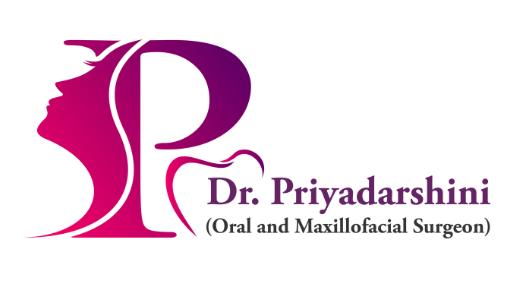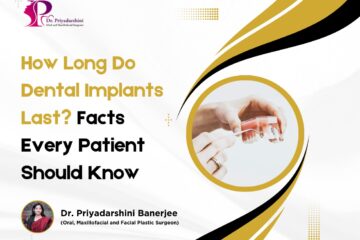How to Care for Your Dental Implants for Lasting Results
Dental implants are a wonderful investment in your smile and oral health, but like all things, they require some tender love and care to maintain. Proper care can help your implants stay beautiful and functional for years, maybe even a lifetime.
Here’s a detailed guide on how to care for your dental implants to ensure they look as good as the day you got them!
Best Dental Implant Surgeon in Pune
Table of Contents
- Understanding Dental Implants
- Why Proper Care is Essential for Implants
- Daily Care Routine for Dental Implants
- Foods to Avoid (and Enjoy!) with Dental Implants
- Professional Care: The Importance of Regular Checkups
- Spotting Signs of Potential Issues
- Special Considerations for Long-Term Implant Health
- FAQs on Dental Implant Care
- Conclusion: A Healthy Smile for a Lifetime
1. Understanding Dental Implants
Dental implants are artificial tooth roots made of titanium or zirconia, surgically placed into the jawbone to support replacement teeth. They fuse with the bone, creating a stable foundation that mimics natural teeth in function and appearance. Unlike dentures, implants provide a permanent solution, giving you the confidence to eat, speak, and smile without worry.
2. Why Proper Care is Essential for Implants
While dental implants are highly durable, they’re not invincible. Proper care ensures:
- Longevity: Implants can last decades with the right care.
- Preventing Infections: Poor hygiene can lead to peri-implantitis, an inflammatory condition that can cause bone loss around the implant.
- Preserving Oral Health: Good care prevents plaque buildup, protecting your gums and surrounding teeth.
By maintaining a healthy oral environment, you’ll safeguard your implant investment for the long run.
3. Daily Care Routine for Dental Implants
a) Brushing Properly
- Use a Soft-Bristled Brush: Gentle on both natural teeth and implants.
- Brush Twice Daily: Ensures plaque and bacteria don’t build up.
- Use a Low-Abrasive Toothpaste: Protects the implant surface without scratching.
b) Flossing Daily
- Choose Implant-Safe Floss: Implant-specific floss is usually non-abrasive.
- Use a Floss Threader: Helpful if the implant is in a hard-to-reach spot.
- Water Flossers are Effective Too: These are gentle and can effectively remove food particles around implants.
c) Mouthwash
- Antibacterial Mouthwash: Helps control bacteria, but consult your dentist for a suitable product.
- Avoid Alcohol-Based Rinses: They can dry out the mouth and irritate the gums.
4. Foods to Avoid (and Enjoy!) with Dental Implants
Implants are strong, but it’s wise to avoid certain foods to prevent unnecessary strain:
- Sticky Foods: Like caramel and toffee, which can dislodge the crown.
- Hard Foods: Ice, hard candies, or unpopped popcorn kernels can cause fractures.
- Sugary Snacks: Promote bacterial growth that may compromise gum health.
Foods to Enjoy
- Soft, Nutritious Options: Fruits, vegetables, lean proteins, and dairy promote overall oral health.
- Hydrating Foods: Like cucumbers and watermelons, keep your mouth moist and protect the gums.
5. Professional Care: The Importance of Regular Checkups
Routine checkups help ensure your implants are healthy and functioning as they should:
- Biannual Cleanings and Exams: Your dentist will assess your implant and the surrounding gum tissue.
- X-Rays as Needed: Periodic X-rays reveal any underlying bone or implant issues.
- Specialized Cleaning Tools: Dentists use instruments specifically designed for implants to avoid scratches.
6. Spotting Signs of Potential Issues
It’s important to monitor your implants for any changes, as these could indicate an issue:
- Redness or Swelling Around the Implant: Can be a sign of infection.
- Persistent Pain or Discomfort: A potential indicator of peri-implantitis.
- Mobility or Loosening: Implants should feel like natural teeth; if they’re loose, contact your dentist immediately.
Early detection allows for prompt intervention, which is crucial for implant health.
7. Special Considerations for Long-Term Implant Health
a) Lifestyle Choices
- Avoid Smoking: Smoking slows healing and increases the risk of implant failure.
- Limit Alcohol: Alcohol can impair gum healing and dry out the mouth, leading to bacterial growth.
- Manage Chronic Conditions: Conditions like diabetes can impact implant health, so regular monitoring is essential.
b) Specific Care for Older Adults
- Older adults may need more frequent checkups to monitor bone density and gum health.
- Ensuring a well-rounded diet and consistent hydration is essential for maintaining gum health and supporting the implant.
c) Using a Night Guard for Bruxism
- If you grind your teeth, ask your dentist about a night guard, as grinding can damage the implant or crown over time.
8. FAQs on Dental Implant Care
Q: Can I use a regular toothbrush on my implant?
A: Yes, but a soft-bristled or electric toothbrush with gentle settings is best to avoid scratching.
Q: What should I do if my implant feels loose?
A: Contact your dentist immediately. Implants should feel secure, so any movement warrants a checkup.
Q: Are there any special oral care products I should use?
A: Implant-specific products, like low-abrasive toothpaste and antibacterial mouthwash, are helpful. Consult your dentist for recommendations tailored to your needs.
9. Conclusion: A Healthy Smile for a Lifetime
Caring for your dental implants may seem like a commitment, but it’s worth every step. By following these care guidelines, you’re investing in a long-lasting smile, one that will stay beautiful and functional. Whether you’re brushing daily, choosing the right foods, or scheduling your checkups, these habits will help your implant stay healthy for years.
With the proper care, dental implants can be a lifelong solution, allowing you to smile, laugh, and enjoy life to the fullest without hesitation. If you have any questions or concerns, don’t hesitate to consult your dentist—they’re here to ensure that you’re confident and informed about every aspect of your dental health.
Book an appointment today!
If you have any general or medical enquiry, feel free to contact us.



